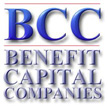 |
CONFIDENTIAL ESOP FINANCIAL BENEFITS ESOP FINANCIAL BENEFITS COMPARED TO A NON-ESOP TRANSACTION Following is an overview of the potential benefits an ESOP transaction could provide to both the selling and buying sides. For purposes of this example, we have assumed a 100% ESOP buyout from a private seller with a transaction value of $10 million (and a negligible or zero tax basis in the securities sale). The proportionate benefits of using the ESOP technique of corporate finance would inure to the parties to the transaction regardless of size. Seller Benefits Section 1042 of the Internal Revenue Code enables shareholders of privately held companies which have a three-year holding period to reinvest the proceeds of a sale of stock to employees into any U. S. domestic corporate securities (either public or private) on a tax-deferred basis. 1042 Rollover Benefit Comparison
Assumes state of residence sale where this benefit is recognized for both state and federal tax purposes (rounded). Reinvestment Benefit
Buyer Benefits Deductible Principal and Dividend Payments Over the Life of the ESOP Debt Principal and interest payments on ESOP debt are tax deductible, thus reducing the pretax cash flow required to service ESOP debt.
Computation of Total Additional Financial Benefits
As evidenced above, the total additional benefits available to both buyer and seller in the ESOP transaction exceed 100% of the transaction value. It is the overall magnitude of the enhancements an ESOP can provide that appeals to both potential buyers and sellers and makes an ESOP worthy of further evaluation. Additional Benefit: Convert to an S corporation after being a C corporation and income to the ESOP is tax-free. ESOPFIN1/7-03 |